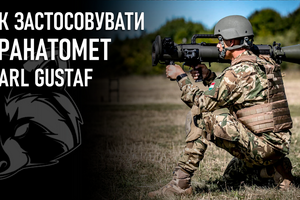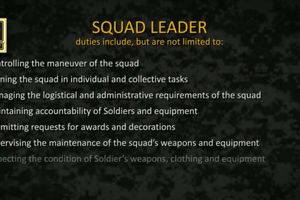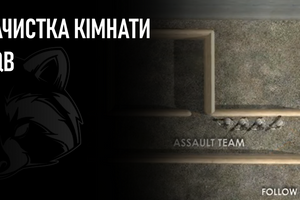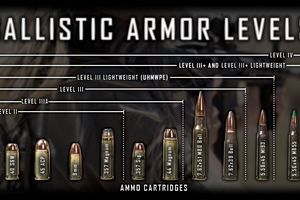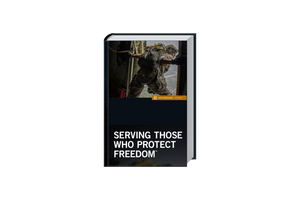Information gathering is the art of inspiring another person to have a talk with you, conducting this talk in an innocuous manner, asking the proper questions at the right time and the ability to make this conversation interesting to the person you are talking to. When used correctly, the “target” or “object” is rarely able to recognise that the gatherer of information is interested in a particular issue or technology. The following several approaches are effectively applied when collecting information.
False statement — the gatherer specifically makes a false statement in order to be corrected — "I can’t believe that the distance of effective use of this device is 5 thousand metres." Expected answer: "No, actually the effective use distance is 9 thousand meters." This method is applied to self-confident and narcissistic people.
Indirect flattery — applied to a person well versed in the subject of conversation — "This base is really very guarded, I think that only a few people really know what types of tests are conducted there." Expected answer: "You're right, but I can tell you ..."
Naive thinking — the gatherer pretends that he is not familiar with or is not aware of a specific program or technology. The approach is used so that a knowledgeable person considers himself obligated to enlighten the collector — "I had no idea they could produce rockets here." The necessary answer: "They do. Our factory produces ..."
Word repeating — the gatherer repeats the main points from the previous utterance of the person, for example the "target" expresses his dissatisfaction with the labour conditions. The answer of the gatherer may be like "Do you really think that your colleagues are already tired of this?" The "target" — "Yes, lately they are tired of the order of 12 hour shifts." The gatherer — "Is it really that they force everyone to work for 12 hours?" The "target" — "Yes, we need to produce XXX sensors for ..."
Instinctive complaint — many people include much more information in their complaints. Collector — "Is everything allright? What, does the boss make work like mad?" The expected answer: "Yes, he’s an absolute moron. He’s trying his hardest so that we are ready for delivery ..."
Criticism — indirect criticism of a person criticises a situation. When this happens, a knowledgeable person will feel obligated to stand up for the formulated situation. The gatherer — "It’s just disgusting that the US government doesn’t allow the purchase of samples ... by the armies of other countries." The expected response is "Actually, we already have a purchase permit for..."
Disbelief is similar as approach with criticism, but here the gatherer simply expresses a certain level of distrust towards the subject of interest. “I can’t believe that the US Army cannot count all its vehicles in Iraq and Afghanistan.” The expected answer is “Yes, it's really simple, we use very high-tech ...”
Leading question — incomplete questions usually require clarification — "Last night I saw a convoy on highway 42. I drove a little along it this morning and noticed that the road was damaged. Although, you know, it wasn't in decent condition before." Expected answer: "Yes, we conducted a convoy ... along this road in order to bring supplies to our ... operations."
Information gathering is actually not as hard work as you think. You just need to put aside your desires, beliefs and needs (for example, the need to talk to someone), and push the person with whom you are talking to talk more. Take a look at these two simple life examples and compare the answers in both cases.
Example 1: (with the disclosuring of many details about yourself)
Target: I can’t believe that they just adopted a package of new laws restricting the possession of weapons and ammunition in California.
Gatherer: I have not seen them yet. Are they so bad?
Target: Yes, they are just awful! I don’t even know how me and my comrades will now buy rounds together every week.
Gatherer: Every week?
Target: Yes, we bua a group of 5000 rounds every week. It's much cheaper: if ten of us buy, we get a good discount. At least we've had time to buy some things in the last six months.
Gatherer: Well done. Very practical. Good planning!
Target: Yeah, we're well connected. A cousin of one of our guys works at an arms store on 173rd Street and sells us at a good price unofficially. I could hook you up too, if it weren't for the new retarded laws. I've got no idea how we're gonna shop now. It's good that we were able to create some stock.
Example 2: (with a more correct approach to answers)
Target: I can’t believe that they have just adopted a package of new laws restricting the possession of weapons and ammunition in California.
Gatherer: I have not seen them yet. Are they so bad?
Target: Yes, I can send you a link. Or just look it up yourself. You will understand everything. Let me know what you think.
Gatherer: So, the laws will somehow affect you or your guys in the group?
Target: I don't have a group. I can barely keep my family in order.






























































































































